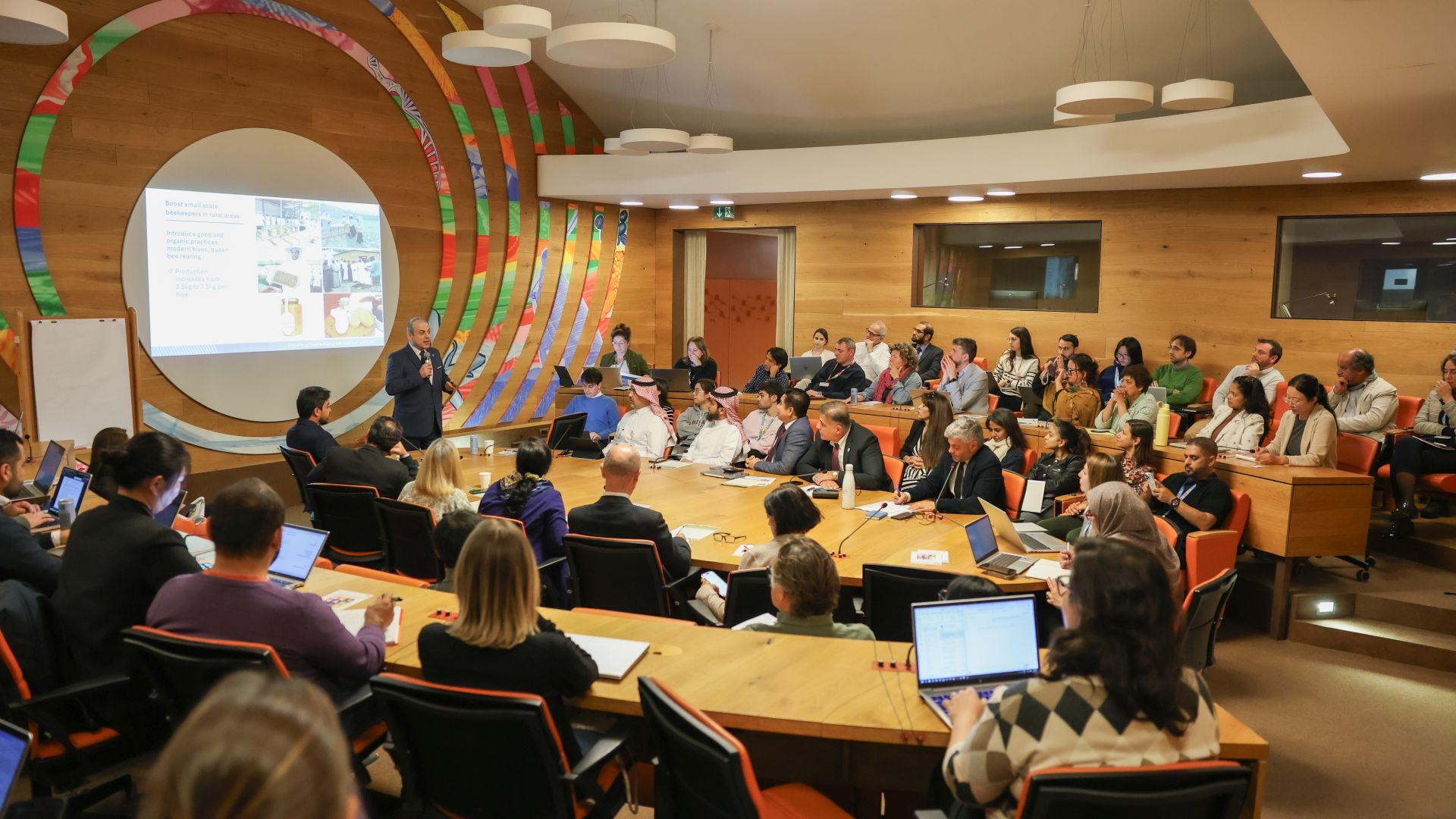Saudi Arabia’s REEF Programme presents Pathways for Sustainable Rural Transformation

©FAO
The Food and Agriculture Organization of the United Nations (FAO) today convened a workshop on “Agrifood Systems Transformation: Experiences from the Sustainable Rural Agriculture Development Programme (REEF) of the Kingdom of Saudi Arabia.”
Organized in collaboration with FAO’s Rural Transformation and Gender Equality Division (ESP) at HQ premises, the event highlighted Saudi Arabia’s efforts to promote sustainable rural development and strengthen smallholders’ livelihoods under Vision 2030.
The workshop presented the achievements and lessons of the Sustainable Rural Agriculture Development (SRAD) Programme, jointly implemented by FAO and the Ministry of Environment, Water and Agriculture (MEWA), which supports the REEF initiative of the Kingdom of Saudi Arabia. The programme aims to enhance sustainable productivity, introduce innovative farming practices and expand market access for small-scale farmers, cooperatives and rural enterprises.
Since its launch, REEF has positively impacted over 120,000 beneficiaries, including women and youth and aims to reach 200,000 in the coming years. Through FAO’s technical support, the initiative is revitalizing rural agrifood systems and promoting sustainable management of land, water and natural resources, helping smallholders transition from traditional to commercial agriculture.
“The REEF programme demonstrates how targeted investments and knowledge-sharing can transform rural communities,” said Nizar Haddad, FAO Saudi Arabia Programme Director “By empowering smallholders and integrating innovation into rural systems, we are strengthening resilience and building pathways towards inclusive and sustainable agrifood systems in line with FAO’s vision of the Four Betters.”
Eng. Adel Mohammed Almotlaq, Deputy Secretary-General of the Sustainable Rural Agricultural Development Programme (REEF), acknowledged FAO’s crucial role in providing comprehensive technical support to strengthen capacities, improve livelihoods of small-scale farmers and producers to advance rural transformation.
The workshop also provided a platform for sharing technical experiences and implementation models developed through the programme’s eight value chains, including coffee, honey, rose cultivation, small livestock, fisheries, and rainfed crops. Discussions emphasized the importance of capacity development, value chain integration, and local innovation ecosystems as key drivers of sustainable rural transformation.
Mr. Adriano Campolina, Senior Policy Officer, highlighted that the Kingdom of Saudi Arabia is a member of the G20 Global Alliance Against Poverty and Hunger, and noted that its flagship program REEF is part of the Kingdom’s statement of commitments to the Alliance.
The event offered a valuable opportunity to foster cross - country learning and experience sharing on the importance of advancing rural transformation through national, regional and global initiatives.
FAO’s partnership with the Kingdom of Saudi Arabia under the REEF-SRAD Programme exemplifies how strategic cooperation with high-income countries can contribute to rural transformation and advance global sustainable development goals.
